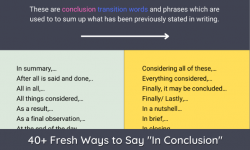25+ Common Proverbs and Their Meanings in English
Learning common English proverbs and their meanings can enrich your everyday conversation and vocabulary skills. English proverbs can be useful in everyday life, speeches, essays, quotations and exams such as IELTS and TOEFL.
Every language has its own proverbs. For example, the Turkish proverb “Bana arkadaşını söyle, sana kim olduğunu söyleyeyim” (“Tell me who you associate with and I’ll tell you who you are”) has an equivalent in the English proverb “A man is known by the company he keeps” and the Spanish proverb “Dime con quien andas y te dire quien ares.”
With our list of over 25 common English proverbs, you can learn many useful proverbs and download the English Proverbs A-Z list PDF at the end of our list.
Common Sayings Used in Everyday Life
1. It Takes Two to Tango
– When we talk about the proverb “It takes two to tango,” we mean that for something to work successfully, both parties involved must participate actively and contribute to the effort.

Example: In a group project at school, it takes two to tango. Each member needs to contribute their ideas and efforts to achieve a good grade.
2. There’s No Place like Home
This proverb means that a person is happiest when they are with their family and friends in a familiar environment.

Example: After traveling for months, Maryam finally returned to her hometown. She realized there’s no place like home when she saw her family waiting for her at the airport.
3. An Apple a Day Keeps the Doctor Away
Eating healthy foods can help maintain good health and reduce the need for medical attention.

Example: Noor believes in the saying “An apple a day keeps the doctor away,” so she eats fruits and vegetables every day to stay healthy.
4. Do As I Say, Not As I Do
This proverb advises following someone’s instructions but not imitating their actions if they are not good examples.

Example: The coach told the team, “Do as I say, not as I do,” reminding them to focus on teamwork even though he made a mistake during practice.
5. When in Rome Do As the Romans Do
This means adapting to local customs and behaviors when in a different environment or culture.

Example: While visiting Turkiye, Tom followed the custom of taking off his shoes before entering a home because he knew, “When in Rome, do as the Romans do.”
6. Curiosity Killed the Cat
Being overly curious about things that don’t concern you may lead to trouble or problems.

Example: Sarah’s mom warned her not to eavesdrop on conversations because “Curiosity killed the cat,” and she might hear something she shouldn’t.
7. Don’t Bite Off More Than You Can Chew
This proverb advises against taking on more responsibilities or tasks than one can handle.

Example: Ahmad decided not to join two clubs at once because he didn’t want to bite off more than he could chew and risk failing in both.
8. Don’t Put All Your Eggs in One Basket
This means not investing everything in one single thing to avoid losing everything at once.

Example: Emily decided to invest her money in different stocks instead of just one company. She knew not to put all her eggs in one basket.
9. Where There’s Smoke, There’s Fire
This proverb suggests that if there are signs or indications of a problem or issue, there is likely some truth to it.

Example: When the news reported rumors of layoffs at the company, employees started to worry because they believed that where there’s smoke, there’s fire.
10. No Pain, No Gain
This proverb means that achieving success or improvement often requires hard work and effort.

Example: Ahmad practiced playing the piano for hours every day. He understood that no pain, no gain, and eventually, her skills improved dramatically.
11. Practice Makes Perfect
Repeatedly doing something helps improve your skills or abilities.

Example: John struggled with his math homework at first, but he kept practicing every day. He knew that practice makes perfect, and soon he was solving problems easily.
12. Rome Wasn’t Built in a Day
Important or significant tasks take time to complete properly.

Example: Mary wanted to learn a new language fluently. Her teacher reminded her that Rome wasn’t built in a day, so she needed to be patient and practice consistently.
13. Beggars Can’t Be Choosers
When someone is in need, they should be grateful for what they receive, even if it’s not exactly what they wanted.

Example: When Tom’s car broke down, his friend offered him a ride in his old truck. Tom accepted gratefully, knowing that beggars can’t be choosers.
14. A Leopard Cannot Change His Spots
This proverb means that a person’s character or behavior is unlikely to change, especially if it’s ingrained over time.

Example: Despite promising to study harder, Mark continued to skip classes. His teacher sighed, realizing that a leopard cannot change his spots.
15. Money Does Not Grow on Trees
Money is not easily obtained and requires hard work or effort to earn.

Example: When Emma asked her parents for a new phone, they reminded her that money doesn’t grow on trees, and she would need to save up or earn it herself.
Check Also:
English Idioms and Phrases List & Download (PDF Archive)
100+ Commonly Used English Idioms (PDF)
12 English Tenses Exercise, Notes and eBooks & (PDF Archive)
16. You Can’t Teach an Old Dog New Tricks
This proverb implies that it’s challenging to change someone’s habits or behavior, especially if they are set in their ways.
Example: Grandma refuses to use a smartphone because she believes you can’t teach an old dog new tricks, preferring her old flip phone instead.
17. He Who Laughs Last, Laughs Best
The person who succeeds or has the final say in a situation enjoys the most satisfaction or victory.
Example: Despite all the teasing from his friends, John studied hard and passed his exams. Now he’s the one laughing last and laughing best.
18. Beauty Is in the Eye of the Beholder
What one person finds beautiful or appealing may not be the same for someone else; beauty is subjective.
Example: While some people prefer modern art, others find beauty in classical paintings. Beauty is truly in the eye of the beholder.
19. Blood Is Thicker Than Water
Family bonds are stronger than other relationships.
Example: When Sarah was in trouble, her cousin traveled across the country to help her. It showed that blood is thicker than water.
20. A Friend in Need Is a Friend Indeed
A true friend is someone who helps you in times of need or difficulty.
Example: When Jack lost his job, his friend offered him a place to stay and helped him find new job opportunities. Indeed, a friend in need is a friend indeed.
21. Love Is Blind
When you love someone, you may overlook their faults or shortcomings.
Example: Despite her friend’s warnings about her boyfriend’s behavior, Jane believed love is blind and defended him until she saw the truth.
22. Actions Speak Louder Than Words
What you do carries more weight or truth than what you say.
Example: Instead of promising to help, Sarah actually helped her friend move. Her actions spoke louder than words, showing her true support.
23. Better Late Than Never
It’s better to do something late than to never do it at all.
Example: Jenny missed her friend’s birthday party but sent a heartfelt apology and gift later. Her friend appreciated the gesture, believing that it’s better late than never.
24. Better Safe Than Sorry
It’s wiser to be cautious and prevent problems than to take risks and regret them later.
Example: Before going on a hike, Tom checked the weather forecast and packed extra supplies. Better safe than sorry, especially in the wilderness.
25. Haste Makes Waste
Rushing or doing things too quickly can lead to mistakes or poor outcomes that require more time to fix.
Example: Sarah hurried to finish her essay but forgot to proofread it. Her teacher reminded her that haste makes waste when she received a lower grade.
26. You Reap What You Sow
The consequences of your actions, whether good or bad, will come back to you eventually.
Example: Mark treated his classmates with kindness, and they supported him during tough times. He realized he was reaping what he sowed in terms of friendships.
27. The Grass Is Always Greener on the Other Side of the Fence
People often think that other situations or circumstances are better than their own.
Example: Despite her success, Lisa admired her friend’s seemingly carefree life. She realized the grass is always greener on the other side of the fence.
28. The Best Things in Life Are Free
True happiness and valuable experiences don’t necessarily cost money.
Example: Sarah enjoyed spending time with her family at the park. She believed that the best things in life are free, like laughter and love.
29. No News Is Good News
If you don’t hear any updates or information about a situation, it’s likely because nothing negative has happened.
Example: After submitting his job application, Tom didn’t hear back from the company for weeks. He remembered that no news is good news and remained optimistic.
Proverbs A-Z Dictionary PDF
Proverbs A-Z Dictionary PDF – download




Ohhh. Interesting and I learn a lot here.